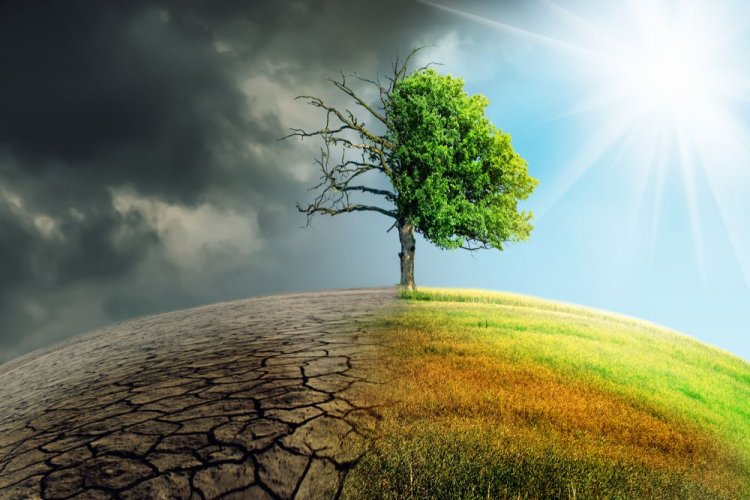On Thursday, October 24, the world celebrates the World or International Day of Action for Climate Protection. It is designed to raise awareness of climate change and stimulate action to combat it.
EcoPolitic has gathered information for its readers about why the International Day of Climate Action is important and what each of us can do to save the climate.
This important day dates back to 2005 and is part of the Global Climate Campaign. Among other things, it aims to remind governments of their obligations to implement international agreements, such as the Kyoto Protocol and the Paris Climate Agreement, which provide for the reduction of greenhouse gas emissions.
The International Day of Action for Climate Protection was introduced in response to the call of meteorologists to protect the climate, because the lives of both ours and future generations depend on it. Organizers of various events on this day around the world try not only to tell people about the problem, but also to show how it can be solved through the personal actions of everyone.
The idea behind Climate Action Day is for millions of people to take part in a variety of activities, from marches and protests to debates and any other form of public action.
Why the issue of climate protection is relevant
Climate protection is one of the most critical global issues that humanity must urgently address. Irreversible climate changes on the planet, about which scientists, ecologists and eco-activists around the world literally shout every day, are daily reminded of themselves by record temperatures, melting glaciers, floods, droughts, fires and hurricanes of unprecedented strength and scale. Among the most recent examples are super-powerful hurricane Milton in the USA and catastrophic floods that submerged half of Europe.
UN Secretary General Antonio Guterres even stated that the world is on the "road to climate hell". So what are the risks of climate change?
1. Global warming.
In today's conditions, when climate change has already become obvious even to ordinary citizens, the International Day of Climate Action draws attention to the problem of global warming and the consequences of increasing the level of greenhouse gases in the atmosphere, the main of which is carbon dioxide CO2. Its concentration in the atmosphere has increased to record levels over the past 2 million years.
It is the greenhouse gases that humanity produces on a larger and larger scale that cause the rapid heating of the planet. It, in its turn, becomes the cause of mass melting of glaciers, record marks on thermometers, shallowing of rivers and a whole series of dangerous changes.
2. Loss of biodiversity.
Climate change causes the destruction of natural ecosystems and the extinction of species. The sustainability of the ecosystems of the planet Earth and humanity depends precisely from the number of species. The more of them, the higher the resistance to various adverse conditions: weather, alien aggressive species, changes in the environment, etc. Studies show that regions with a high level of biodiversity have richer natural resources and are also able to cope with the consequences of natural disasters more quickly.
3. Sea level rise.
Melting of glaciers and thermal expansion of oceans leads to flooding of coastal areas. Accelerating ice sheet loss means that in the next decade is expected significant rise in sea level. From 1992 to 2022, the planet's frozen poles lost 7,560 billion tons of mass, accounting for a quarter of all sea level rise.
4. Economic losses.
The consequences of climate change cause significant economic damage, especially for agriculture and tourism. Scientists from the German Potsdam Institute for Climate Impact Research (PIK) discovered , that by 2049 economic losses from climate change may reach about $38 trillion per year.
What each of us can do
Change doesn't just start at the level of governments—everyone can do their part in the fight against climate change. What should be done for this? We tell.
- Reduce your carbon footprint: use energy-efficient appliances, switch to renewable energy sources, abandon plastic in favor of green alternatives such as eco-bags and reusable dishes.
- Sort waste: its further processing will reduce the amount of waste that ends up in landfills.
- Support environmental initiatives: join volunteer projects, support environmental organizations, go to rallies, actions and pickets demanding politicians to take decisive measures to protect the climate.
- Vote for environmentally conscious politicians: elect leaders who prioritize caring for the environment.
- Switch to renewable energy sources: if possible, install mini-SES and mini-wind turbines in their own homes.
International Climate Action Day is a reminder of the importance of conserving biodiversity, reducing carbon emissions and working towards a greener and more sustainable future for all.
The UN COP29 international climate conference will be held in Baku on November 11-22. Its central theme will be a new global climate finance target.





